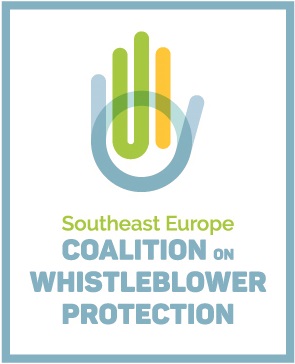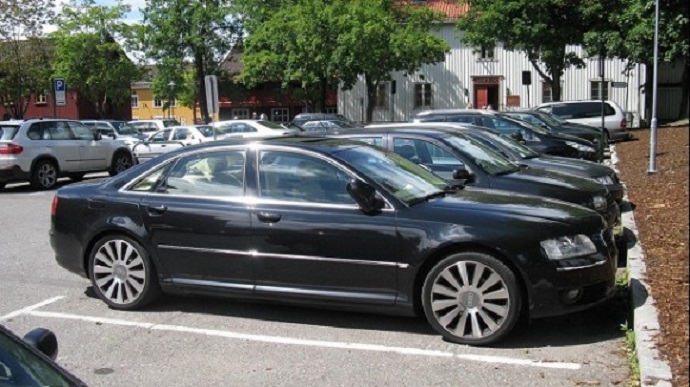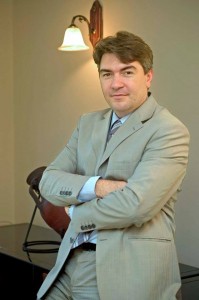authors: Bjanka Stankovich, Angela Petrovska and Angela Rajchevska
Municipalities spend huge amounts for fuel and service maintenance of their official vehicles. Fuel costs are also big and they affect the municipal budget.
The SCOOP team sent requests under free access to public information to all municipalities in the Republic of Macedonia.
The authorities were asked for information on the amounts spent on fuel annually for the last five years, from 2012 to 2016, the amounts and names of the companies that the fuel contract was signed with, but also those that a service contract was concluded with, as well as the amounts thereof.
Fuel consumption does not often coincide with the actual mileage of local officials. Did the municipal management actually use that fuel or it was fictitious invoices?
The City of Skopje, as one of the largest municipalities in the Republic of Macedonia, has a fleet of 39 vehicles. In the last five years the Municipality spent over 6 million denars for fuel. Citizens give money for these services from their pocket. Namely, every citizen of the City of Skopje in the past 5 years paid 3,941 denars for fuel and official vehicles servicing of the city bureaucracy.
In Gostivar, for the fuel used by the municipality, the citizens gave 925 denars in the last five years.
Centar Zhupa, a municipality that has about 6,000 inhabitants, spent over 18 thousand Euros for fuel in the last five years, with each citizen paying around 500 denars. A similar amount was paid by the citizens of Zrnovci and Radovish. The citizens of the municipality of Aracinovo paid slightly less, that is, about 460 denars.
MUNICIPALITY WITH 18 OFFICIAL VEHICLES
The Municipality of Kocani can boast with its extensive fleet of 18 vehicles, eight more than the richest Skopje municipality of Centar.
Lozovo, a small municipality with a population of 2,858 citizens, who for their only one official vehicle allocated incredible 589 denars per citizen, i.e., from the municipality’s cash register, only for this one vehicle, for 5 years they spent fantastic 416,818 denars or nearly 7,000 Euros.
KOCHANI “MORE EXPENSIVE” THAN CENTER REGARDING FUEL FOR OFFICIAL VEHICLES
The Municipality of Kocani, with a fleet of 18 vehicles, spent over 50 thousand liters of fuel for five years, for which the municipality paid over 3 million denars. Provided that the average fuel consumption of vehicles is 8 liters per 100 kilometers, it turns out that the municipality’s fleet drove about 620 thousand kilometers or about 35 thousand kilometers each vehicle separately. This is the same as if each of the vehicles had traveled about 17 times from Kocani to Berlin.
The citizens of Kocani paid 961 denars for these services in the municipality for 5 years, unlike the citizens of the municipality of Centar who gave 825 denars.
Meanwhile, for the last five years, Centar spent over 68 thousand liters of fuel and paid over 4 million denars. With this fuel, about 850 thousand kilometers were driven, or 85 thousand kilometers each vehicle separately.
About 17 thousand citizens in Delcevo paid 448 denars for the last five years for the eight official vehicles in the municipality. For 12 official vehicles in Kriva Palanka almost 90 thousand liters of fuel were spent, for which the municipality allocated 91 thousand Euros.
The citizens in Lozovo spent a little more, though a small municipality with a population of 2,858 inhabitants. For their one official vehicle, in the last five years they allocated 589 denars.
In the last two years the municipality of Radovish paid around 30 thousand Euros for fuel.
The differences in the municipalities of same or similar size and with a different number of official vehicles prove the fact that there were too many official vehicles.
MISUSE OF OFFICIAL AUTHORIZATIONS
In April this year the media published the news about four criminal charges against the Mayor of the Municipality of Makedonski Brod, Milosim Vojneski.
In addition to other charges such as allegations of irregular tenders for students’ transportation, oil for cleaning local channels and the like, Vojneski is charged for allowing fuel to be consumed for official and private purposes without keeping any records.
The SCOOP research team sent a request for free access to public information to this municipality. We asked about the use of fuel, consumption, companies, fuel type, and vehicle service. The authorities responded that due to the criminal proceedings currently being conducted, they were not able to send the requested information because their documents were in police. We were informed that after the completion of the procedure we would be delivered the documents. We also requested a statement from the mayor. In a telephone conversation he said that everything was set up and the criminal charges and what was written on web portals was tendentious:
“Someone who wants to take my place, that is, wants to be a mayor, obviously cannot do it, so he is trying in any way”, Vojneski said.
In the web portals there was news about the mayor of Stip, Ilcho Zahariev, whose official vehicle was photographed in the mayor’s village, Zvegor.
It was said that Zahariev went for lunch in the village near Stip with a vehicle that is in municipal ownership.
“THEY EITHER WORKED A LOT, OR THE VEHICLES WERE USED FOR PRIVATE PURPOSES”
Economist Zoran Vitanov points out two possible reasons for the huge number of municipal official vehicles. One is that the staff really worked a lot and the results show that. The second is that official vehicles were used for other, party private purposes:
“I think that according to the results achieved and what we see in such municipalities, not so many vehicles are necessary for them to work well. It is simply a misuse”.
Andrej Petrov, former mayor of Karpos municipality, says that each municipality needs vehicles, but their number should not be big and they should not be expensive:
“It is a fashion that did not use to exist among mayors. I hope that conditions will be created for this fashion to go out. But there must be vehicles. There are departments that cannot function without vehicles, but there do not have to be four C-Class luxury vehicles in the mayor’s office”.
He emphasizes that all this results from extremely irresponsible despotic behavior in the style: “I am the mayor, I can do it. I have the pen, I do what I want”.
CITIZENS DECISIVE: WE NEED PAVED STREETS, WATER SUPPLY, INSTEAD OF LUXURY…
In the survey carried out by the journalist team of SCOOP, 75% of the respondents believe that the money for excessive fuel consumption spent by municipal administration daily and without special needs, except for the luxury of local officials, should be redirected to infrastructure construction, renovation and maintenance.
This, above all, for the reason that it is the citizens’ money. The respondents say that the priorities are: water supply, sewerage, asphalt, organization of local schools, street lighting…Many of the municipal bureaucrats in both urban and rural areas do not get out of the official vehicles, they drive unnecessary kilometers, they spend budget money on fuel instead of water pipes.
In the SCOOP survey, as an example of what can be changed for the better in the municipalities, citizens pointed out:
Increasing the number of parks and cultural centers in the municipalities, investing in schools, and equipping them with computers or special developed laboratories that will help students acquire practical knowledge.
The respondents proposed construction of new sports fields and halls in those municipalities where citizens do not have conditions for recreation.
SERVICING – A SPECIAL “CONSUMPTION STORY”
In addition to the large fuel consumption, in the municipalities contracts were signed worth over 1 million denars for servicing municipalities’ official vehicles.
One service contract concluded between the Municipality of Gostivar and car Service “Vesiri” for 2013 through a public procurement tender is 1.200.000 denars. The contract, explained in the response to the request for free access to public information, is not in the Public Procurement Bureau.
The value of the service contracts of the municipality of Cair, concluded in 2014 with “Automakedonija” AD Skopje and “Dzevat Isaki” DOOEL Skopje, reaches 1.180.000 denars per contract or total.
In the municipalities Aracinovo, Zrnovci, Valandovo, Gevgelija, Bogdanci, Makedonska Kamenica and Chashka they say that they have not signed a service contract. In some of them annual servicing does not amount to more than 30,000 denars, as is the example with the municipality of Demir Hisar. In some municipalities, Petrovec, for example, they have engaged a full-time mechanic. There are also examples such as the Municipality of Resen where servicing and maintenance of vehicles is carried out by the mechanics of the local public utility company “Proleter”.
“Irresponsibility, even ill-bredness, nothing else. It is the concept to have, but simply, irresponsible politicians who do not feel ethics as something recognizable and their own”, says Zoran Vitanov.
The former mayor of the Municipality of Karposh, Andrej Petrov, adds that it should be worked on rulebooks and legal norms that will regulate the level of use of vehicles.
“If we go to the level of morality and what is moral, one can respect it and one cannot. In order to achieve this, we should have strict norms and vehicles should be returned to the municipality at the end of working hours. As there are cases of misuse where the mayor or his close people in the municipality put fuel and go on holiday. It is something shameful. Something I cannot understand and in the European Western context it is unacceptable”.
The SCOOP survey and the reactions of the surveyed citizens show that Macedonian municipalities have too many official vehicles, too much fuel is consumed and a lot of money is provided for service maintenance. In addition, small municipalities and those with modest budgets very often spend more on their official vehicles than on communal and urban needs of their citizens.
(The story was is supported within the NED project “Raising Awareness about Corruption through Investigative Reporting”)








